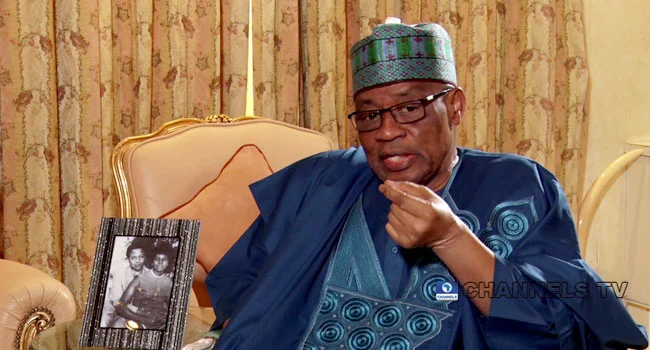Former Military Head of State, Ibrahim Badamosi Babangida (IBB), has dismissed claims that the 1966 military coup was an “Igbo coup,” stating that its leader, Major Kaduna Nzeogwu, was more Hausa than Igbo.
In his newly released book, A Journey in Service, Babangida described Nzeogwu as a fluent Hausa speaker who was Igbo only by name. He noted that Nzeogwu, born and raised in Kaduna to parents from Okpanam in present-day Delta State, was deeply integrated into Hausa culture.
Babangida condemned Nzeogwu’s role in the assassination of Sir Ahmadu Bello and his wife, Hafsatu, calling it “heinously callous” given their widespread admiration.
He wrote: “Nzeogwu and his original team probably thought, even if naively, that they could turn things around for the better in the country. However, the coup was soon infiltrated by outsiders, giving it an ethnic color, especially since no related coup activities occurred in the Eastern Region.”
Babangida also highlighted that some senior Igbo officers were among the coup’s victims. He cited Lt-Col. Arthur Chinyelu Unegbe, who was killed by his fellow Igbo officer, Major Chris Anuforo, for being perceived as a threat to the coup.
He further pointed out that non-Igbo officers, including Major Adewale Ademoyega, Captain Ganiyu Adeleke, and Lts. Pola Oyewole and Olafimihan, participated in the coup, while another Igbo officer, Major John Obienu, played a key role in crushing it.
Addressing claims of ethnic motivations, Babangida referenced the plotters’ alleged plan to release Chief Obafemi Awolowo from prison and install him as Nigeria’s executive provisional president. He suggested this action contradicted the notion of the coup being an Igbo conspiracy, though he admitted his view might be speculative.



